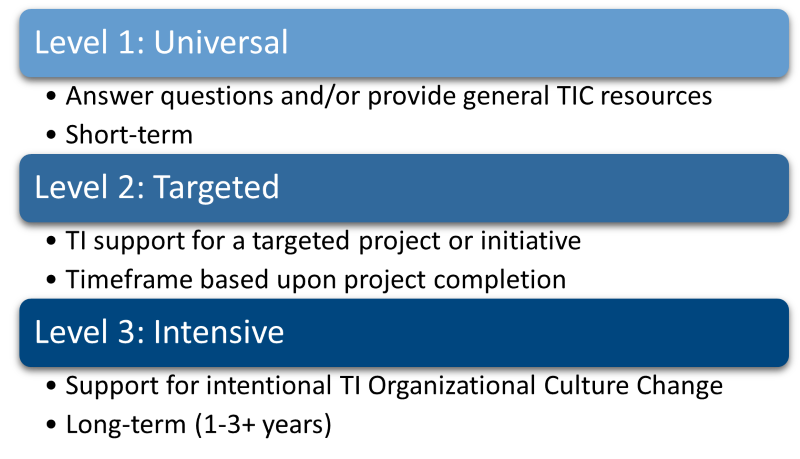The Substance Abuse and Mental Health Services Administration (SAMHSA) has designated Trauma-Informed Care (TIC) as a best practice. TIC is not just about making changes; it fosters a transformation at multiple levels within an organization. This system-wide approach, grounded in a scientific understanding of trauma, enhances the safety of service relationships for both clients and staff in substance use disorder (SUD) treatment facilities and all mental health settings.

This easy to use and adaptable guide is designed to guide TTC consultants through the Trauma-Informed Care implementation process
Implementing trauma-informed care is a multi-year process that often benefits from external facilitation and consultation. The goals of this multi-level transformation within an SUD treatment context are to create a culture that recognizes:
Mid-America ATTC, in partnership with University Health’s Center for Trauma-Informed Innovation, is committed to providing SUD treatment and recovery-oriented organizations and providers with the technical assistance they need to create more trauma-informed cultures.
For questions or more information about TIC support, please contact Andrea Dalton at [email protected]
